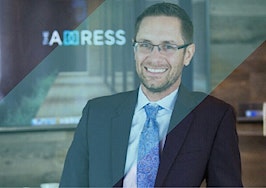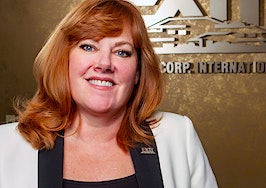In real estate, we often think that we’re reinventing the wheel when we hear about the newest tech innovation or platform. However, in many cases, we find out that what’s good for clients has already been created — just in a different form than expected.
In looking for real estate companies with truly end-to-end transaction capabilities, I had the opportunity to speak with Howard W. “Hoby” Hanna, IV, president of Howard Hanna Real Estate Services. Hoby has been instrumental in growing his family’s firm to more than 300 offices in Pennsylvania, Ohio, New York, Virginia, Michigan, West Virginia, North Carolina, South Carolina, Maryland and Indiana.
Part of the reason for this ongoing growth? Depth of experience and a commitment to serving clients at every stage, from the first contact all the way through the closing process.
How long have you been providing end-to-end transaction services for your clients?
We’ve been doing this as a company since 1982. We started as a brokerage firm in 1957, and we’re still family-owned and independently operated. My dad, his sisters and my grandfather had the foresight in the ’80s, with interest rates through the roof, to get on the mortgage business.
At that time, savings and loans were the primary lenders. In the 1980s, with $30,000, my father and his sisters took a risk and started a mortgage company when mortgage rates were at an all-time high, to help our clients obtain financing. We’ve been in the title business since 1981.
Now, we have mortgage banking firms, title and escrow companies, a property and casualty insurance group, an appraisal division in Pennsylvania and a survey company, all designed to make the transaction simpler, more transparent and affordable for our clients.
How are clients given the option of whether or not to work with each of your platforms? Do they sign disclosures?
Federal law requires our affiliated entities to disclose the affiliations at the first moment that a potential referral to one of those affiliates occurs. In addition, several of the states where we practice require additional disclosures.
If you’re a buyer with Howard Hanna, at the first point of contact with one of our agents, we’re explaining not only the agent role in the transaction, but also these services that we can offer our clients to have full awareness of the affiliated relationships.
We need the same type of disclosure with the seller, so that they know that a buyer may be coming in with one of those companies. We let them know that our goal is to make everything smoother and faster.
Most of our marketing is internal. Our mortgage company was the largest in Greater Cleveland and Greater Pittsburgh in 2019 in terms of purchase mortgages. We don’t do a lot of outside marketing of our mortgage company because we want to provide it to the customers and clients of Howard Hanna.
If you talk to one of our real estate agents or see our marketing campaigns, you know that we do more than just enable residential real estate sales, but that we provide other services. Our business model is for our loan officers to find the customer base within our brokerages.
We have highly competitive rates, great products and great technology for ease of expediency and timing. Our buyers use our affiliated settlement services a vast majority of the time, but Howard Hanna buyers still use outside service providers for mortgage, title and insurance. So, not everyone uses our affiliated services; we definitely don’t demand it of our clients.
We can’t and don’t provide bonuses to sales agents for bringing clients. We want to win based on products and service. We still work very closely with other mortgage, title and insurance companies, but we feel there are offerings we can put in place.
What are the licensure or legal ramifications of having everything under one umbrella?
For us, there are licensure and regulatory issues at the federal level and almost every state level, and it varies in different states. If you’re in the financial service business, there should be compliance. I think that helps everybody, especially the consumer, which is so important for us.
There isn’t any state that we’re in that prohibits us from being in those businesses. There are states that only allow you to own a certain percentage of affiliated businesses.
One of the big things people assume is that we can reward and remunerate our sales people differently if they bring clients to affiliated business, but we can’t, and we have no desire to. That would harm the integrity of the business, and we want to make sure we’re always doing what’s best for the customer. We have to work just as hard to make sure we are providing great service and product.
Our agents hold us to even higher standards, because in some cases, we are the first point of contact with the customer. That’s where we win the day — with service, relationship-building, and the trust we build with that customer.
What are the advantages for clients, agents and others of an end-to-end transaction capability?
One is that when it’s all under one roof, everybody has a vested interest in having the transaction come together. In a low-inventory environment, it’s sometimes more difficult to hold deals together, and you see deals falling through or being renegotiated. That causes frustration and time.
We looked back at all of the deals that fell apart, and only a small percentage of the time in deals that fell apart because of a mortgage was it a Howard Hanna pre-approval. We can say to our clients, “If you’re pre-approved with us and we tell the market you’re pre-approved, it’s really true.” There’s a trusted value for sellers in knowing that pre-approval means something.
People forget you need a homeowner’s insurance policy, and I’ve seen us, two or three hours before closing, write a policy for a client so that they can close on time. We know that we can close those deals faster and reduce days on market. That’s because we can go ahead and get things done up front since we know that things are going to close.
Today’s consumers want to buy faster and close quicker, and we can make that easier.
The last piece that’s powerful on the brokerage side is leadership being together on a regular basis. If we’re seeing a challenge coming up or something that can help us sell more homes, we can think-tank and find out what product we can create to overcome objections.
For example, after the Great Recession, the sky was falling, and we had a strategy session. Our mortgage group created a product that said if someone buys a mortgage with us and they lose their job, we’ll make their mortgage payments for six months.
We advertised this promotion widely, and that’s something that gave our agents and consumers confidence. We know it said to the markets we were in: “Howard Hanna believes in the markets we’re in, believes in these homes, believes in the economy, believes in jobs and believes in America.” That would’ve been virtually impossible to do with outside partners — to find someone like-minded and willing to make that offer.
Do you feel that your model is, in its way, cutting-edge for the industry?
One of the challenges is that, as a brokerage business, we look at all the technology stories and disruption that is happening in the business like a new form of purchase or a website. What’s interesting is that there is a strong cadre of us that have been in this arena with one-stop shopping, yet because we have been around for so long we are considered the old establishment.
These things we have been doing and making the investment in are disruptive in their way. People are talking about doing what we’ve been doing as an afterthought, but it’s hard to get into with the capital and regulatory issues. We’ve done that work already decades ago, and we’ve got the experience to use this model to make things better for the consumer.
Christy Murdock Edgar is a Realtor, freelance writer, coach and consultant with Writing Real Estate. She is also a Florida Realtors faculty member. Follow Writing Real Estate on Facebook, Twitter, Instagr













